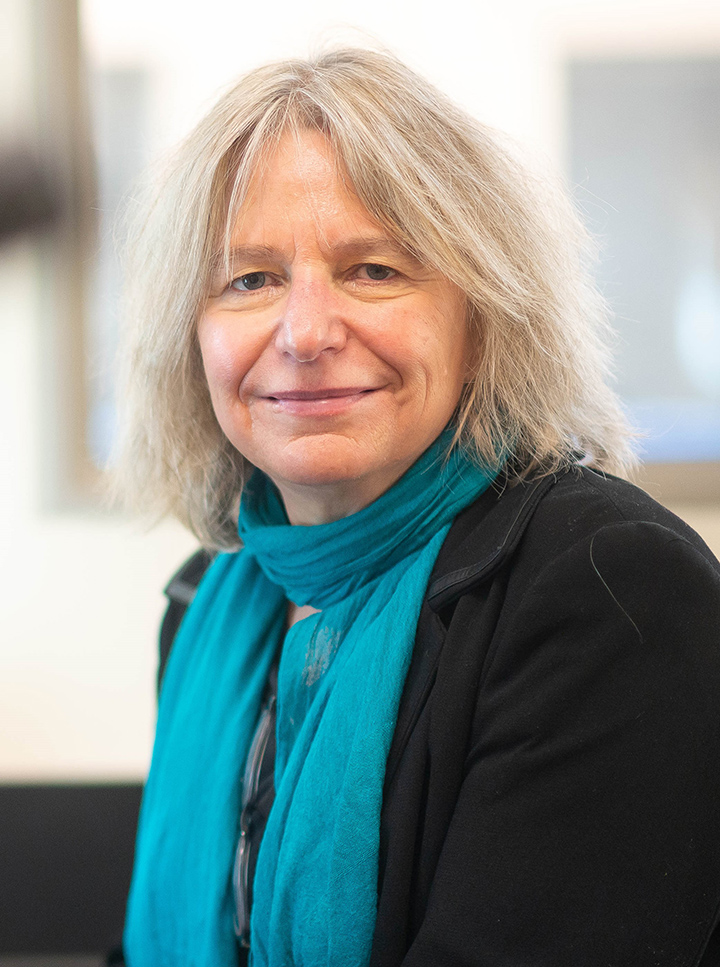2023 Ceremony
The Lewis Thomas Prize for Writing About Science
An International Award Honoring the Scientist as Poet
Will be awarded to
Suzanne Simard, Ph.D.
Professor of Forest Ecology
University of British Columbia
Author of Finding the Mother Tree: Discovering the Wisdom of the Forest
MONDAY, APRIL 17, 2023
5:30 PM Reception
6:30 PM Prize Presentation and Lecture
5:30 PM Reception
6:30 PM Prize Presentation and Lecture
Caspary Auditorium
The Rockefeller University
1230 York Avenue at East 66th Street
New York, NY 10065
The Rockefeller University
1230 York Avenue at East 66th Street
New York, NY 10065
LECTURE VIDEO(opens in new window)
Suzanne Simard, Ph.D. majored in forest management at the University of British Columbia (UBC), with her summers spent working for a logging company and the Forest Service. During that time, she began to question standard forestry practices, which were based on the belief that individual trees vie with one another for resources. Silviculturists cleared swatches of vegetation and then planted monocultures of commercially profitable trees, but Dr. Simard knew that this approach was not sustainable. Forests are interlaced communities of diverse organisms, not patchworks of single-species ghettos. Furthermore, she had a growing suspicion that an underground fungal web might be essential for arboreal health.
To probe her ideas, she embarked on a research career. Her Ph.D. thesis at Oregon State University upended the notion that trees simply hoard carbon, and it was the first in a series of reports that demonstrated the importance of mycorrhizal connections to forest health. These intricate plant–fungus networks transfer resources and chemical signals. “Mother trees” function as hubs, playing crucial roles in connecting the forest.
In 2002, Dr. Simard joined the Faculty of Forestry at UBC, where she is now a professor of forest ecology, leading The Mother Tree Project. This multisite experiment in British Columbia aims to guide renewal practices that support forest resilience as the climate changes. She is also part of the burgeoning movement called the Mother Tree Network.
Dr. Simard has earned a global reputation for pioneering research on tree connectivity and communication, studies that hold significance for the long-term productivity, health, and biodiversity of forests. She has published more than 200 scientific peer-reviewed articles, including in Nature, Ecology, and Global Change Biology, and co-authored the book Climate Change and Variability. Her 2021 book, Finding the Mother Tree, a New York Times bestseller, knits together her personal and professional stories, drawing parallels between humans and trees that touch on interdependence and mutual support in forest ecosystems.
To probe her ideas, she embarked on a research career. Her Ph.D. thesis at Oregon State University upended the notion that trees simply hoard carbon, and it was the first in a series of reports that demonstrated the importance of mycorrhizal connections to forest health. These intricate plant–fungus networks transfer resources and chemical signals. “Mother trees” function as hubs, playing crucial roles in connecting the forest.
In 2002, Dr. Simard joined the Faculty of Forestry at UBC, where she is now a professor of forest ecology, leading The Mother Tree Project. This multisite experiment in British Columbia aims to guide renewal practices that support forest resilience as the climate changes. She is also part of the burgeoning movement called the Mother Tree Network.
Dr. Simard has earned a global reputation for pioneering research on tree connectivity and communication, studies that hold significance for the long-term productivity, health, and biodiversity of forests. She has published more than 200 scientific peer-reviewed articles, including in Nature, Ecology, and Global Change Biology, and co-authored the book Climate Change and Variability. Her 2021 book, Finding the Mother Tree, a New York Times bestseller, knits together her personal and professional stories, drawing parallels between humans and trees that touch on interdependence and mutual support in forest ecosystems.
 Photo by Paul Joseph, University of British Columbia
Photo by Paul Joseph, University of British Columbia